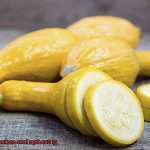Can dogs have vanilla extract in yogurt?
As dog owners, we cherish those moments when we can spoil our furry pals with a special treat. Yogurt, with its tangy creaminess, often tops the list of canine favorites. But what about adding a touch of vanilla extract to elevate the flavor? Is it safe for our four-legged friends? Let’s dig deeper into this tantalizing question.
Picture this: you’re whipping up a batch of cookies and that sweet aroma of vanilla extract fills the air. Naturally, you might wonder if your pup would enjoy that same delightful taste in their yogurt. To find out, we turn to veterinary experts who can help us navigate the potential benefits and risks.
From a professional standpoint, understanding the makeup of vanilla extract is crucial. How will it interact with our dogs’ delicate systems? And does it provide any nutritional value when mixed with yogurt?
Join me as we embark on a quest to uncover the truth behind dogs and vanilla extract in yogurt. Together, we’ll separate fact from fiction and ensure that every treat we give our beloved companions is not only delicious but also safe and healthy.
Is Vanilla Extract Safe for Dogs to Eat?
Contents
- 1 Is Vanilla Extract Safe for Dogs to Eat?
- 2 Understanding the Risks of Feeding Vanilla Extract to Dogs
- 3 What Are the Symptoms of Alcohol Poisoning in Dogs?
- 4 Can Yogurt with Vanilla Extract Be Given to Dogs?
- 5 Alternatives to Adding Vanilla Extract to Dog’s Yogurt
- 6 Tips for Safely Introducing New Foods to Your Dog’s Diet
- 7 The Benefits of Feeding Your Dog Healthy Treats
- 8 Conclusion
Today, we’re going to dive into a delicious topic: vanilla extract. You may be wondering if it’s safe for your furry friend to indulge in this sweet treat. Well, let me tell you, it’s important to exercise caution when it comes to giving vanilla extract to dogs.
Why the need for caution, you ask? Well, vanilla extract is made by soaking vanilla beans in alcohol, usually vodka, to extract the delightful flavors and aromas. While the alcohol content in vanilla extract may seem low, typically ranging between 35% and 40%, it can still be harmful to our precious Frenchies if consumed in large quantities.

Alcohol can wreak havoc on a dog’s health. It can cause liver damage, gastrointestinal upset, and even alcohol poisoning. Just a small amount of alcohol can lead to unpleasant symptoms like vomiting, diarrhea, coordination problems, and in severe cases, respiratory distress and coma. Sacrebleu.
Now, don’t fret too much. The amount of vanilla extract used in recipes is usually minimal and diluted with other ingredients. In most baked goods or desserts, the amount present is unlikely to cause harm if your Frenchie accidentally sneaks a taste or two.
However, when it comes to giving dogs vanilla extract directly or using it as an ingredient in homemade dog treats or yogurt, we must be extra careful. While a small lick or taste may not be harmful, it is best to avoid intentionally giving dogs vanilla extract.
Mais oui, there’s more. Some store-bought vanilla extracts may contain additives such as sugar or artificial sweeteners like xylitol. These additives are toxic to dogs and should be avoided at all costs.
So what can we do to add flavor to our dog’s yogurt or homemade treats? Fear not. There are safer alternatives available. Naturel, dog-friendly flavors such as mashed bananas, pumpkin puree, or unsweetened applesauce can be used instead. Your Frenchie will still have a tasty treat without the potential dangers of vanilla extract.
But wait, there’s a wise tip I must share with you. Always consult with your veterinarian before introducing any new ingredients or flavors into your dog’s diet. They are the experts who can provide guidance based on your Frenchie’s specific needs and any existing health conditions. It’s always better to be safe than sorry, non?
Remember, mes amis, the health and well-being of our French Bulldogs should always be our top priority. While a small amount of vanilla extract may not cause immediate harm, it’s best to err on the side of caution and avoid giving it to your dog. Stick to dog-friendly ingredients and consult with your veterinarian for any concerns or questions regarding your pet’s diet. Your Frenchie will thank you with their adorable snorts and cuddles.
Understanding the Risks of Feeding Vanilla Extract to Dogs
As much as we love spoiling our furry friends, it’s important to be aware of the potential risks associated with certain foods. One such food that may seem harmless but can actually be dangerous for dogs is vanilla extract. Here, we’ll delve into the risks of feeding vanilla extract to dogs, particularly targeting our French Bulldog friends.
Alcohol Content: A Serious Concern
When it comes to vanilla extract, the main cause for concern is its alcohol content. Vanilla extract is made by soaking vanilla beans in alcohol, usually vodka, to extract the flavor. The alcohol content can vary, but it typically hovers around 35%. Now, we all know that alcohol is toxic to dogs and can wreak havoc on their health. It can lead to liver damage, gastrointestinal upset, and in severe cases, even death.
Size Matters: Smaller Breeds at Higher Risk
Even though a typical recipe may only call for a small amount of vanilla extract, it can still be harmful to dogs, especially smaller breeds like our beloved French Bulldogs. Their smaller size means that even a small amount of alcohol can have a significant impact on their health.
Additionally, dogs with underlying health conditions may be even more susceptible to the adverse effects of alcohol.
Not Just the Alcohol: Other Compounds in Vanilla Extract
Apart from the alcohol content, vanilla extract also contains other compounds that could pose a problem for dogs. For instance, vanillin, the main component of vanilla extract, can cause digestive upset in dogs and may even lead to pancreatitis in some cases.
This means that even if a small lick or taste doesn’t immediately harm your Frenchie, repeated exposure or larger amounts can result in serious consequences.
Watch Out for Additives and Sweeteners
As if the alcohol and vanillin weren’t enough of a concern, many commercially available vanilla extracts also contain additives or sweeteners.
These additives, such as sugar or artificial sweeteners like xylitol, are toxic to dogs and can further increase the risk of health issues if consumed.
Better Safe Than Sorry: Avoiding Vanilla Extract Altogether
Given the potential risks associated with feeding foods containing vanilla extract to our furry friends, it’s always better to err on the side of caution. Even if a small amount may not cause immediate harm, it’s best to avoid giving any food with vanilla extract to dogs altogether. This includes yogurt, which may have a small amount of vanilla extract in it. Opt for other dog-friendly flavors like mashed bananas or pumpkin puree instead.
Consult Your Veterinarian
If you’re unsure about what foods are safe for your French Bulldog or any other breed, it’s always a good idea to consult your veterinarian. They can provide personalized advice based on your dog’s specific needs and health conditions.
What Are the Symptoms of Alcohol Poisoning in Dogs?
We all love spoiling our furry friends, but did you know that some treats can pose a serious risk to our beloved pups? One such danger is alcohol poisoning. In today’s post, we’ll be diving into the symptoms of alcohol poisoning in dogs, so you can keep a close eye on your four-legged companion and ensure their safety. Let’s get started.
Vomiting: Sacré bleu.
If your Frenchie has ingested alcohol, they may start vomiting uncontrollably. It’s their way of saying, “Sacrebleu. Get this toxic stuff out of my tummy.” Keep an eye out for repeated episodes of vomiting and make sure your pup stays hydrated.
Lethargy: Feeling weak at the paws
Has your Frenchie been acting sluggish or unsteady on their feet? Alcohol poisoning can cause weakness and fatigue, making it difficult for them to walk or stand properly. Just like us after a few too many glasses of wine, they’ll need some extra support.
Seizures and tremors: Zut alors.
Witnessing your Frenchie having a seizure or experiencing tremors can be terrifying. These involuntary movements are a clear sign that their condition is critical, and immediate veterinary care is essential. Don’t hesitate to reach out to the professionals when you see this happening.
Irregular heartbeat: Mon coeur.
Alcohol can mess with your Frenchie’s ticker. If you notice an increased heart rate or irregular heartbeat, it’s time to take action. Poor blood circulation and oxygenation can worsen their symptoms and put them at risk. Be sure to seek veterinary care promptly.
Confusion and collapse
Alcohol poisoning can make your Frenchie feel as if they’ve had a few too many glasses of champagne. They may become confused, disoriented, and excessively drool. In severe cases, they might even collapse or slip into a coma. C’est très dangereux.
Can Yogurt with Vanilla Extract Be Given to Dogs?
As a proud French Bulldog owner myself, I understand the importance of providing our furry friends with safe and healthy treats. When it comes to sharing yogurt with vanilla extract, it’s crucial to consider the ingredients in the vanilla extract before letting your pup indulge.
Alcohol Content – A Potential Danger for Dogs
One of the main reasons why you should be cautious about using vanilla extract in your dog’s yogurt is its alcohol content. Most vanilla extracts contain around 35% alcohol, which can be harmful to dogs if consumed in large quantities. Just like us, dogs can suffer from alcohol poisoning, and the symptoms can range from vomiting to collapsing and slipping into a coma. Sacrebleu. We definitely don’t want that for our beloved Frenchies.
Xylitol – A Hidden Threat
Another concerning ingredient that may be found in some vanilla extracts is xylitol. Xylitol is a sugar substitute that is toxic to dogs and can cause a sudden drop in blood sugar levels, leading to seizures or even liver failure. It’s crucial to read the label carefully and ensure that the vanilla extract you choose doesn’t contain this harmful additive.
Consulting with Your Veterinarian
If you’re unsure about the safety of a particular brand of vanilla extract, it’s always best to consult with your veterinarian before giving it to your French Bulldog. They can provide you with expert advice tailored specifically to your dog’s needs and help you make an informed decision.
Safer Alternatives – Natural Vanilla Bean or Powder
If you still want to give your Frenchie yogurt with a hint of vanilla flavoring, there are safer alternatives available. Natural vanilla bean or powder can be used instead of vanilla extract, as they do not contain alcohol or harmful additives. Just like we use “c’est bon” instead of “good,” using natural vanilla flavoring will ensure that your dog can enjoy their treat without any risks.
Moderation Is Key
Regardless of the type of vanilla flavoring you choose, it’s essential to keep the amount minimal and avoid excessive consumption. Remember, moderation is key when introducing new foods or flavors into your French Bulldog’s diet.
Keep an Eye Out for Digestive Upset
As responsible dog owners, it’s our duty to monitor our furry friends for any signs of digestive upset or adverse reactions after introducing new foods. If you notice any unusual symptoms such as diarrhea or vomiting, it’s best to discontinue the treat and consult with your veterinarian.
Alternatives to Adding Vanilla Extract to Dog’s Yogurt
In this paw-some blog post, we’ll explore some safe and tasty alternatives to vanilla extract for your French Bulldog’s yogurt. Let’s dive in.
Plain, Unsweetened Yogurt:
Why fix it if it ain’t broken? Stick with plain, unsweetened yogurt without any additives. This way, your pup can still enjoy the benefits of probiotics and essential nutrients without any potential risks associated with vanilla extract. It’s a win-win situation.
A Touch of Honey:
If your Frenchie craves a touch of sweetness, a small amount of honey can do the trick. Honey is safe for dogs in moderation and adds a delightful flavor to their yogurt. Just remember to keep it in small amounts as excessive consumption may lead to tummy troubles.
Fresh Fruity Fun:
Who doesn’t love a pop of fruity goodness? Mash up some bananas or puree some berries to add flavor and extra vitamins and antioxidants to your pup’s yogurt. It’s a healthy and tasty treat they won’t be able to resist.
Spice It Up:
If you’re feeling adventurous, why not sprinkle in some safe-for-dogs spices like cinnamon or ginger? These flavorful additions can give your dog’s yogurt a subtle kick without any negative effects. Just remember to use them sparingly and monitor your pup’s reaction.
Mix It Up with Their Regular Food:
For those who prefer variety, mix your Frenchie’s yogurt with their regular dog food. This creates a delicious and nutritious meal or treat that will have them drooling with delight. Plus, it saves you from worrying about potentially harmful additives like vanilla extract.
Tips for Safely Introducing New Foods to Your Dog’s Diet
Introducing new foods to your French Bulldog’s diet can be an exciting adventure, but it’s important to approach it with caution. French Bulldogs have sensitive digestive systems, and sudden changes in their diet can lead to digestive upset or other health issues. To ensure a smooth transition, follow these tips for safely introducing new foods to your furry friend.
Consult with Your Veterinarian:
Before adding any new foods to your French Bulldog’s diet, consult with your veterinarian. They can provide personalized advice based on your dog’s age, breed, and any existing health conditions. Your vet can recommend appropriate portion sizes and ensure that the new food is safe for your dog.
Choose High-Quality Ingredients:
When introducing new foods, including yogurt with vanilla extract, opt for high-quality products free from artificial sweeteners, additives, and preservatives. Vanilla extract itself is generally safe for dogs in small amounts, but always check the ingredient list for potential harmful substances.
Start with Plain Yogurt:
Begin by offering a small amount of plain yogurt without any additives or flavors. This will allow you to gauge your French Bulldog’s response and ensure they tolerate dairy products well. If your dog shows signs of digestive upset like diarrhea or vomiting, discontinue feeding yogurt immediately and consult your vet.
Gradually Introduce Vanilla Extract:
If your dog tolerates plain yogurt well, you can gradually introduce a small amount of vanilla extract. Remember that dogs have a more sensitive sense of smell and taste than humans, so a little goes a long way. Begin with just a drop or two mixed into their plain yogurt and monitor their reaction.
Watch for Allergies or Adverse Reactions:
Keep an eye out for any signs of allergies or adverse reactions after introducing vanilla extract. These may include itching, redness, swelling, or gastrointestinal issues. If you notice any of these symptoms, stop feeding the yogurt with vanilla extract and consult your veterinarian.
The Benefits of Feeding Your Dog Healthy Treats
As a French Bulldog owner, you want to make sure your furry friend is happy and healthy. One way to achieve that is by feeding them healthy treats. Not only do these tasty morsels provide essential nutrients, but they also offer a range of benefits for your pup. Let’s take a closer look at why feeding your French Bulldog healthy treats is so important.
- Maintains a Balanced Diet: Just like us, dogs need a well-balanced diet to thrive. Healthy treats can be a great addition to their regular meals, providing the extra nutrients they need. Look for treats that are made with natural ingredients and have added vitamins and minerals to support your French Bulldog’s overall health.
- Helps with Weight Management: French Bulldogs are prone to weight gain, which can lead to various health issues. By choosing healthy treats that are low in calories and fat, you can help your pup maintain a healthy weight. Look for treats that are specifically formulated for weight management or those that have portion control guidelines.
- Improves Digestion: Some healthy treats contain ingredients like probiotics and fiber that can aid in digestion. These treats can help regulate your French Bulldog’s digestive system, reduce gas and bloating, and promote regular bowel movements. Look for treats with added digestive enzymes or pumpkin, which is known for its digestive benefits.
- Promotes Healthy Skin and Coat: A shiny coat and healthy skin are signs of a happy dog. Healthy treats that contain omega-3 fatty acids can help improve your French Bulldog’s skin and coat health. These fatty acids have anti-inflammatory properties that can reduce itching and irritation, leading to healthier skin and less shedding.
- Provides Mental Stimulation: Dogs, including French Bulldogs, love to chew on things. Providing them with healthy treats designed for chewing not only satisfies their natural instincts but also provides mental stimulation. Look for treats that are long-lasting and made with safe materials, such as natural rubber or nylon.
- Supports Joint Health: French Bulldogs are prone to joint issues, such as hip dysplasia. Omega-3 fatty acids found in some healthy treats can help reduce inflammation in the joints and support overall joint health. These treats can be particularly beneficial for older French Bulldogs or those with existing joint conditions.
- Strengthens the Bond: Feeding your French Bulldog healthy treats is not just about their physical health—it’s also about strengthening the bond between you and your furry friend. Positive reinforcement through treats can help with training and create a deeper connection between you and your pup.
Remember, when choosing healthy treats for your French Bulldog, it’s essential to opt for those specifically formulated for dogs. Avoid treats that contain harmful ingredients like artificial colors, preservatives, excessive amounts of sugar, or high levels of salt. Always consult with your veterinarian before introducing any new treats into your dog’s diet.
S6FGT_smonE” >
Conclusion
In conclusion, it is best to avoid giving dogs yogurt with vanilla extract.
While a small amount of plain yogurt can be a healthy treat for dogs, the addition of vanilla extract can pose potential risks. Vanilla extract often contains alcohol and artificial additives that may not be safe for canine consumption.
These substances can cause digestive issues, allergic reactions, or even toxicity in dogs. It’s always better to err on the side of caution when it comes to feeding your furry friend.
Stick to plain yogurt without any additional flavorings or additives to ensure their well-being.




